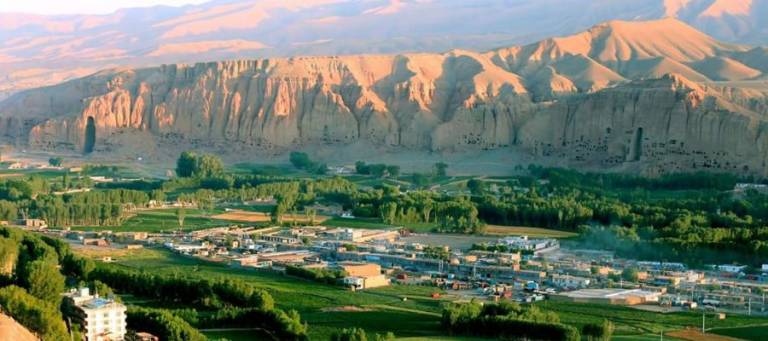Taliban arrested 24 elders in Bamyan on Wednesday, September 13, in connection to a land dispute between villagers and an outsider man. The elders were taken from Rigshad at the center of Bamiyan after failing to pay 6.7 million Afghanis to Gulab Shah also known as Alam Shah who has claimed 7.5 acres of land in the village.
Most of the land in question are roads that connect the villagers’ houses to their farmlands. Elders were released on bail after several hours on the condition to pay 1.7 million Afghanis by September 16.
Residents say Shah came a month ago after a Taliban court ruled in his favor to block the roads by parking construction vehicles and equipment on them. Nearly 500 families use the roads and complain that Shah, who is not even a resident of Bamyan, has demanded money in return for allowing them to use the roads.
Shah, himself a Pashtun, has been able to enforce his claims in a predominantly Hazara province by the support from the Taliban who have ordered the local population to pay 1.7 million Afghanis to access the roads.
Mr. Shah appeared in Bamyan two years ago with forged documents, the local residents say. People say they have used the land he claims ownership of for generations and have decades-old mud houses constructed on parts of it. He initially demanded 10.9 million Afghanis (the equivalent of $122,000) from the residents, of which 3.3 million were paid last year by 13 families whose houses Mr. Shah claims were built on his land.

The recent incident of mass arrest came after the people failed to raise the remainder of the money demanded by Mr. Shah and his relatives.
The Taliban officials have denied commenting on the incident and have barred the people from giving away details.
Hazaras who have long been targeted by multiple militant groups, particularly the Taliban, have found themselves more vulnerable with the group’s return to power. Reports show that thousands of Hazaras have been forcibly displaced, their lands and other properties confiscated by the Taliban or groups affiliated with them in Daikundi, Maidan Wardak, Helmand, Uruzgan, Sar-e-Pul and other provinces.
Bamyan, where the giant statues of Buddha the Taliban exploded in 2001 was located, was considered one of the few strongholds for the Hazaras during the republican government. As such, the province has particularly suffered since the Taliban took power.
The group detained Mohammad Ghulami and Awaz Danesh, Hazara residents of Bamyan’s Panjab district, for refusing to hand over their land to the nomadic Pashtuns, known as Kuchis. Three months earlier, four other residents of Panjab were also jailed for not surrendering the land claimed by Kochis.
In August 2022, The United States Holocaust Memorial Museum called for urgent action to address the plight of Hazaras in Afghanistan under the Taliban. Despite promises to protect the Hazaras from threats, the Taliban have committed targeted attacks and have forcibly displaced thousands of Hazara civilians, their statement said.




